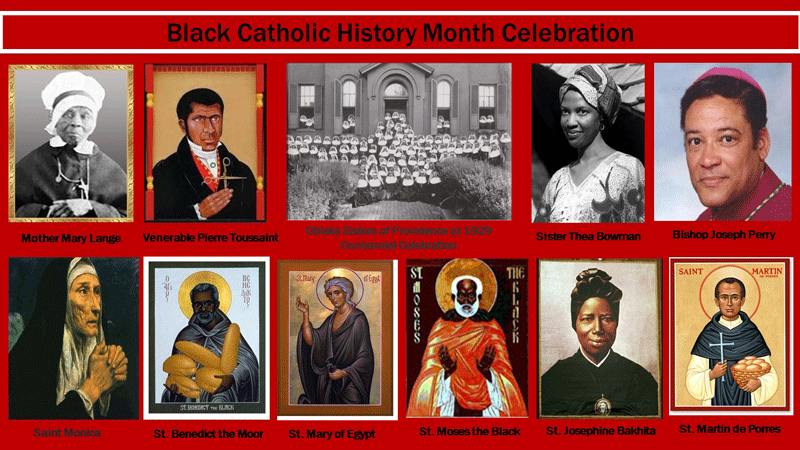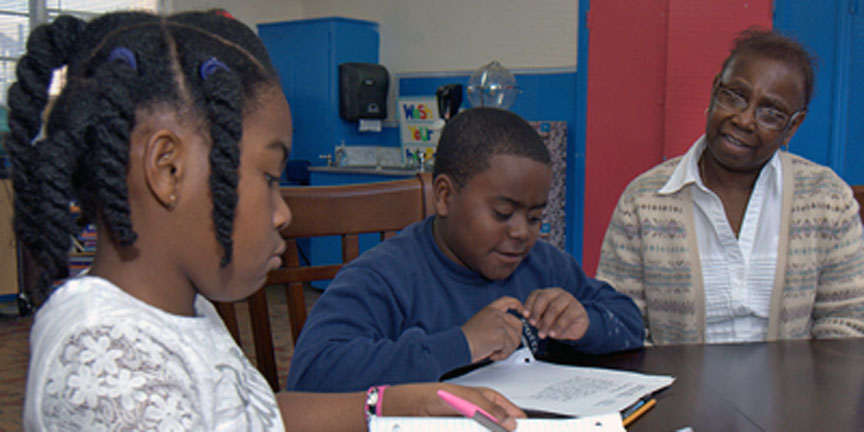
November is Black Catholic History Month, and it is a time full of eye-opening information for many people.
For example, most people don’t realize that black Catholic history dates all the way back to the Acts of the Apostles (8: 26-40) with the conversion of the Ethiopian Eunuch by Philip the Deacon.
The National Black Catholic Congress notes the importance of this text for several reasons. First, it chronicles the conversion of the first Black African in recorded Christian history. Second, the text suggests that the man was a wealthy, literate, and powerful emissary of the Nubian Queen and also a faithful, practicing Jew prior to his baptism; not an ignorant heathen. Third, the Ethiopian Eunuch’s conversion takes place even before that of St. Paul.
Sister Roberta Fulton, principal of St. Martin de Porres School in Columbia, said she gets excited every year about all the ways to celebrate black Catholic history and share how they have helped make the Church what it is today. A native of Kingstree, Sister Roberta noted that she is the only black religious sister from the state and is a living example of what the month is all about.
Black Catholic History Month was initiated in 1990 by the National Black Catholic Clergy Caucus of the United States. November was chosen because it holds two commemorative dates for prominent African Catholics: St. Augustine, whose birthday is Nov. 13; and St. Martin de Porres, whose feast day is Nov. 3.
Every year, Sister Roberta said her school kicks off the month by celebrating the feast of St. Martin de Porres, who is their patron. The well-known saint is followed by lessons on lesser known figures, such as the three African popes — Sts. Victor I, Melchiades, and Gelasius I — who led the early church through much turmoil.
Several dozen saints fill the pages of history, from Monica and Augustine of Hippo to Perpetua and Felicitas. Visit https://www.ncronline.org/fea ture-series/black-saints/stories for more.
There are also many new names up for canonization, including religious from the Oblate Sisters of Providence and Franciscan Handmaids of the Most Pure Heart of Mary, both of which served in the Diocese of Charleston.
Sister Roberta said they evangelize while they teach, making it fun through trivia, spelling bees, bingo and more.
“I get so excited,” she said, “It’s a big celebration for us. We try to open people to the richness of the history.”
Here are some ways to celebrate, as provided by the Office of Ethnic Ministries:
* Read “The History of Black Catholics in the United States” by Cyprian Davis, “Oblate Sisters of Providence: A Pictorial History” by Sharon C. Knecht, or “Father Augustus Tolton: The First Recognized Black Catholic Priest in America” by Corinna Laughlin and Maria Laughlin.
* Host “What We Have Seen and Heard: A Reflection and Dialogue on Peace”, a pastoral letter written by Bishop Edward Braxton of Belleville, Ill. (http://www.usccb.org/issues-and-action/cultural-diversity/afri can-american/upload/racial-diversity-study-guide-bish-braxton.pdf)
* Involve youth in discussion using the new African American Catholic Youth Bible.
* Hold a music night on “Negro Spirituals”.
* Show the movie “Bakhita: From Slave to Saint”.
* Display the pictorial exhibit of the “History of Black Catholics in the Diocese of Charleston”.
* Give copies of “My Little Black Catholic History Book” to children.
* Contact Kathleen Merritt, director of the diocesan Office of Ethnic Ministries, for details: kathleen@catholic-doc.org.
Image: Composite, Black Catholic History Month


